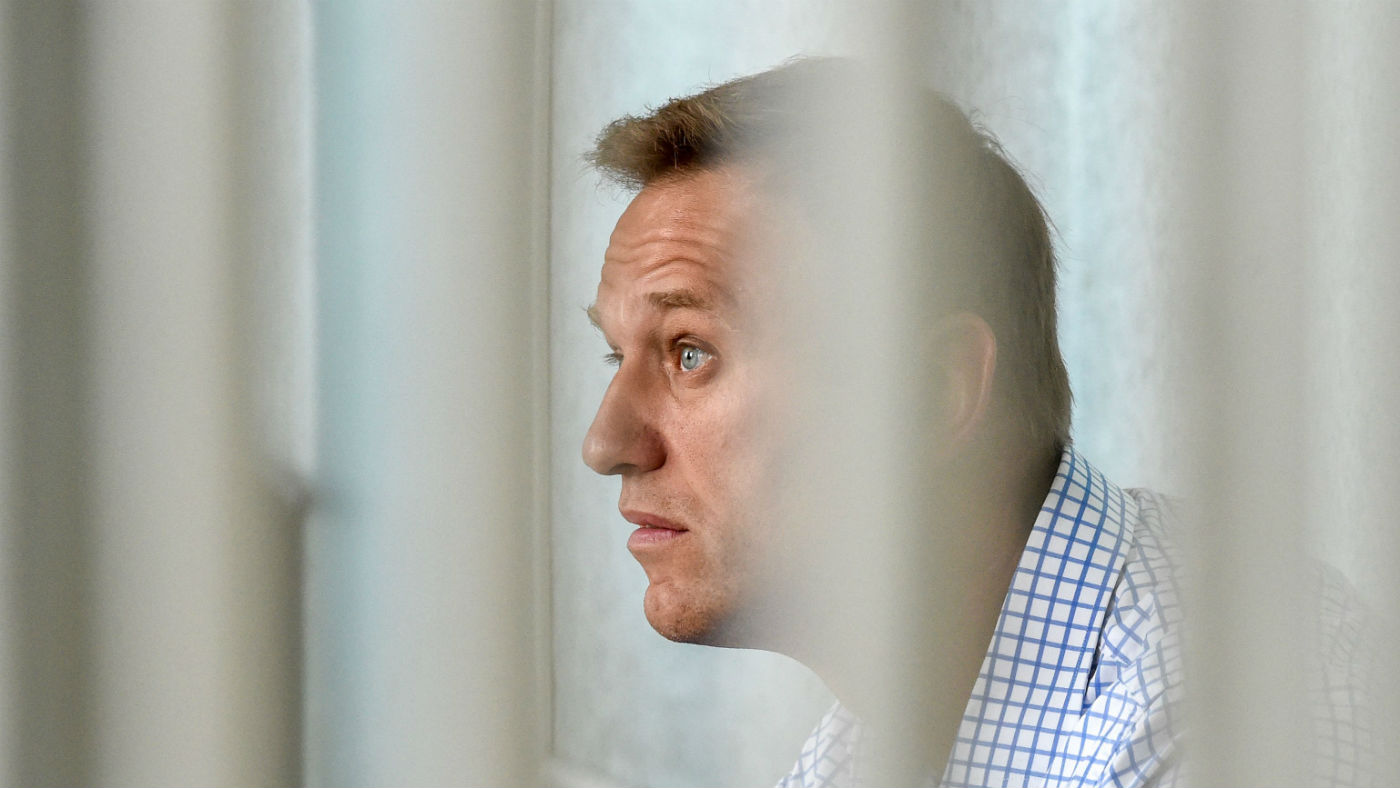Alexei Navalny: was Russian opposition leader poisoned?
Navalny suffers ‘acute allergic reaction’ as more 1,000 people arrested in Moscow following anti-Putin demonstration

A free daily email with the biggest news stories of the day – and the best features from TheWeek.com
You are now subscribed
Your newsletter sign-up was successful
Russia’s most high-profile opposition leader has been hospitalised after suffering a suspicious allergic reaction while in police custody, less than a day after more than a thousand anti-Putin protesters were arrested in Moscow.
Alexei Navalny, who is currently serving a 30-day jail sentence for calling a protest against the exclusion of several opposition-minded candidates from local elections later this year, was rushed to hospital on Sunday morning, with “severe swelling of the face and skin redness.”
Kira Yarmysh, Navalny’s spokeswoman, wrote on Twitter that the cause of the allergic reaction was unknown and that he had never suffered from such reactions in the past.
The Week
Escape your echo chamber. Get the facts behind the news, plus analysis from multiple perspectives.

Sign up for The Week's Free Newsletters
From our morning news briefing to a weekly Good News Newsletter, get the best of The Week delivered directly to your inbox.
From our morning news briefing to a weekly Good News Newsletter, get the best of The Week delivered directly to your inbox.
Navalny has become the focal point of opposition against the Putin regime in recent years.
“Opinion polls in the past have shown support for Navalny, a lawyer and anti-corruption activist, only in the single digits” says the Daily Mail, “but backers note he won almost a third of the vote in a 2013 Moscow mayoral race and say his movement could build momentum in the Russian capital if allowed to compete fairly”.
The timing and circumstance of his hospitalisation will undoubtedly raise questions, especially coming less than a day after police rounded up more than 1,300 people in Moscow at an unauthorised march on Saturday “in one of the biggest crackdowns of recent years against the opposition”, says Reuters.
More than 30 anti-Putin candidates have been barred from standing in Moscow city council elections on 8 September. Officials have claimed they were disqualified for failing to collect enough valid signatures but the opposition say they were barred for political reasons.
A free daily email with the biggest news stories of the day – and the best features from TheWeek.com
Usually attracting little attention in Russia, the council election “has developed into a significant political dispute between the Kremlin and the capital city's 12.6 million people”, says Sky News.
The Guardian describes the authorities’ response against various opposition figures as “alternating between the sinister and absurd” with Russian media outlets reporting the security service, FSB, believing there is a foreign hand behind the protests seeking to destabilise the country.
Last week police conducted night-time raids on the apartments of four leading opposition candidates, seizing their computers and bringing them in for questioning. Then, on the eve of Saturday’s protest, police again raided the apartments of the opposition candidates, detaining nearly all of them.
Police also stormed into an online television station called Dozhd, which was broadcasting the protest, and ordered its editor-in-chief Alexandra Perepelova to be questioned.
One protester told DW that the demonstrations in Moscow reflected larger discontent in Russia.
“Moscow is a reflection of Russia. If things were really bad in Moscow, and things were amazing in the rest of the country, that would be a different thing. But it’s the same everywhere. If I lived in St. Petersburg or Kazan or in Novgorod I would also be out protesting,” he said.
“Even before the election dispute, protests had broken out in provincial cities as Russia’s economy swoons under Western sanctions,” reports the New York Times. “Street actions began over bread-and-butter issues such as the placement of garbage dumps and the dismal wages of medical workers, which highlight growing frustration over gloomy standards of living”.
However, “while the near-weekly demonstrations in the capital and other cities have pierced the image of unified support for Putin, the scale of support for such rallies is unclear”.
“Certainly, the would-be candidates, most of them seasoned anti-Putin activists, are hoping that the resentment will linger. That is exactly why policy handlers in the Kremlin are desperate to put a lid on it,” says BBC News’ Oleg Boldyrev.
“With both Mr Putin’s ratings falling and the United Russia party deeply unpopular, chanting crowds in the capital may send a very powerful message to other regions preparing to hold their elections,” he concludes.